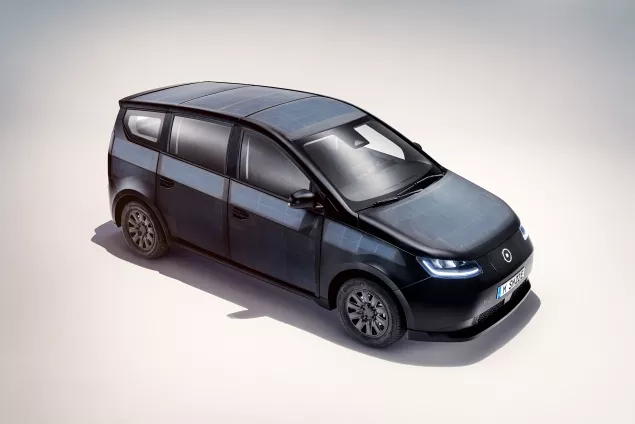The Sion is a compact car wrapped entirely in solar panels. Its maker claims solar power alone is enough to meet most daily driving needs.
Compact and affordable electric vehicles, partly powered by solar energy, are approaching mass production. This shows the maturity of the clean energy approach, which was previously thought to be unrealizable in the automobile.
The final design of a vehicle called Sion, made by German EV startup Sono Motors, was announced today (July 25) at a corporate event in Munich. Production and delivery are expected to begin in Europe later next year, followed by the US and other international markets.
The idea of powering a car with solar energy is not new. However, unsuccessful attempts, including a prototype built by General Motors in the 1950s, are due to energy storage, conversion, and (obviously) weather restrictions, solar energy is a viable energy for everyday driving needs.
I convinced early engineers that it wasn't the source.
Sono proposes a hybrid approach to solve this challenge. On the one hand, to maximize energy yield, Zion is completely wrapped in solar panels (excluding windows). The exterior of the car is covered with more than 450 "solar half-cells" and, according to a press release, can provide up to 70 miles per week in normal weather.
On the other hand, long-distance travel is equipped with a 54kWh lithium iron phosphate battery that provides a range of up to 300km on a single charge. In summary, Zion's range is comparable to the standard range Tesla Model 3.
The main selling point of the Zion is that solar power alone is sufficient to meet most everyday driving needs.
According to the European Commission, based on the average weather in Munich, where Sono is headquartered, Zion's solar panels can provide a range of 21 miles, with an average of less than 12 miles per day sufficient for most European commuters...
In the United States, commuters travel an average of 30 miles a day over long distances. Therefore, Zion's initial appeal may be limited. Still, the company sees the United States as a "big growth potential" market, said Jona Christians, co-founder and co-CEO of Sono.
"Demand for electric vehicles in the United States has skyrocketed in recent years. Further international expansion is our clear long-term goal."
Sono was unveiled in Nasdaq in November with a valuation of nearly $ 1 billion. It currently has a market capitalization of $ 240 million.
According to the company, Zion in Europe has more than 19,000 bookings, which represents a potential sales of € 415 million ($ 424 million).
The car costs € 25,126 ($ 25,695) and is one of the cheapest electric cars on the European market. In the United States, it would be comparable to the Chevrolet Volt.
Sono said he plans to test Zion in the United States in the coming months and specifications may change before it hits the US market. Other companies developing solar-powered electric vehicles are Lightyear in the Netherlands and Aptera Motors in the United States.
The first model of the Light Year, the Light Year 0, will go into production later this year. The price of the vehicle is a whopping 149,000 euros (US $ 152,000). Headquartered in San Diego, Aptera offers three-wheeled electric bikes that are still in the design stage.




